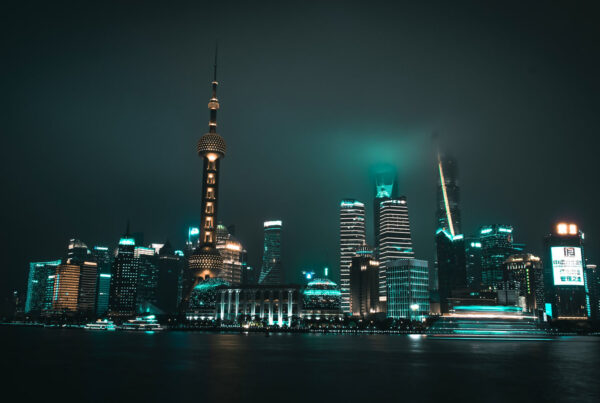While Singapore and Malaysia usually grab most of the attention in Southeast Asia (SEA) in the data center, e-Commerce and telecommunications sectors, an increasing number of industry players are focusing on Indonesia which has become the growth engine for the region.
The archipelago nation, comprising more than 300 ethnic groups spread over 17,508 islands covering an area of 742,308 square miles [1] is the world’s fourth most populous country, and has made enormous gains in economic growth, reducing the country’s poverty rate by more than half since 1999, to 9.78 per cent in 2020. Indonesia has been recently categorized as an upper middle income country [2]. The World Bank noted that at least 52 million of the country’s 273 million-strong population [3] is now part of the middle class [4].
The economic growth in the country has resulted in creation of an upwardly mobile, technology savvy nation with exciting long-term potential for technology companies, particularly data center operators. The Indonesian data center market is expected to grow at a compound annual growth rate (CAGR) of 11 per cent over the period 2019-2025 [5] as demand for online services from the population grows along with prosperity.
Increasing demand for data centers are being fueled in part by the country’s burgeoning e-Commerce market which was valued at US$21 billion in gross market value (GMV) in 2019 [6]. Consulting firm McKinsey estimates that Indonesian e-Commerce will show exponential growth over the next couple of years, with market value pegged at US$40 billion by 2022 [7].
Interestingly, according to another report [8], Indonesia has the highest rate of e-Commerce use of any country in the world, with 90 per cent of the country’s 158 million internet users between the ages of 16 and 64 reporting that they purchase products and services online.
Market analysts estimate that the increasing number of Internet and social media users will have a positive effect on the data center market. Over 20 million new social media users were added in 2018–2019 with more than 10 million active mobile social media users. Around 95 per cent of mobile users watch online videos, and over 60 per cent of the population now performs banking services via smartphones, thereby increasing the demand for the facilities (like data centers) in the country [9].
Along with the e-Commerce push, Indonesia’s 2020 Go Digital vision is likely to boost the digital economy. Under the program, the government plans to support the growth of an e-Commerce eco-system for agriculture, fishery and Small and Medium-sized Enterprises (SMEs) to digitalize and expand their marketing network and increase employment [10]. Around US$10 billion has been set aside for this program which will also increase broadband access to 187 municipalities [11].
While DCI Indonesia, Telkomsigma, NTT Communications, PT DCI/Equinix, and XL Axiata (with whom the Princeton Digital Group has 70/30 majority-owned joint venture for XL Axiata’s data center and colocation portfolio) are the prominent investors and vendors in the Indonesian market, global cloud service providers like Amazon Web Services (AWS) and Google have announced plans to open new cloud regions within the country. The new entrants and user demand are expected to boost the cloud computing market which is estimated to reach over US$1 billion this year. While the SaaS (Software-as-a-Service) segment is the major contributor, the PaaS (Platform-as-a-Service) and IaaS (Infrastructure-as-a-Service) segments are expected to be the fastest-growing [12].
It has been reported that AWS is planning a US$951 million investment in Indonesia, spread over a 10-year period to build a regional presence in the market [13]. According to another news report [14], Google is looking to open its first data center in Indonesia which would meet the demand for cloud computing services in the nation. According to the report a Google spokesman noted that with the data center, the company would be able to roll out “reliable cloud infrastructure” to its consumers. It has also been reported [15] that the Indonesian government is looking to simplify regulations to allow Microsoft to make a data center investment in the country.
Simplified and clear regulations are something that all data center operators in Indonesia are looking for. Meanwhile the government has issued Government Regulations number 82 of 2012 and number 71 of 2019 which state that data on public data administrators are required to carry out management, processing and/or storage of Electronic Systems and Electronic Data within Indonesian territory [16] [17].
The new data storage regulation, coupled with the burgeoning increase in data, thanks to the rapid growth of e-Commerce and the Go Digital push, are expected to result in a major growth in demand for in-country data center facilities. Top local tech companies like globally recognized unicorns Go Jek and Tokopedia as well as others like Traveloka [18] are fueling demand for high quality data center services within the country.
As Indonesian economic growth increases the country is better positioned to reach its full potential as a technology powerhouse. As they grow, businesses will need more cloud computing, resulting in an increased demand for data centers, both from cloud platform providers for the public cloud and businesses that need private clouds. Furthermore, the infrastructure for the availability of electricity and the infrastructure for the network connectivity have improved and were getting better and have been supported by initiatives of the electricity infrastructure providers that utilize renewable energy. Indonesia’s State Electricity Corporation PT PLN recently launched its Renewable Energy Certificate (REC), a market-based instrument that states that the certificate holder uses one MWh of electricity generated from renewable energy sources. The REC recognizes organizations who use renewable energy and PDG is a proud participant of this initiative as the first corporate buyer of the REC services and committed to contributing to lessening the digital economy’s impact on the environment.
With so many opportunities, it is the right time for global companies to enter Indonesian market. For new entrants to this fast-growing market it may be necessary to collaborate with companies like the Princeton Digital Group (PDG) which already has a high-quality eco-system and presence in the country. PDG has five data center facilities in Indonesia located on the islands of Java and Sumatra, and is developing two new hyper-scale greenfield builds that are slated to be ready by 2022. One will be adjacent to our Cibitung facility in Jakarta and the other new build will be interconnected to our existing site in Surabaya [19]. We are well-positioned to provide the infrastructure and facilities required by global hyperscale cloud service providers within Indonesia.
About PDG
Princeton Digital Group (PDG), headquartered in Singapore, is a leading investor, developer and operator of internet infrastructure. PDG partners with global hyperscalers and enterprises to serve their data center and other infrastructure needs across Asia. PDG currently has presence and operations in China, Singapore, India and Indonesia. The company is led by a world-class team with extensive operating experience in the global telecom, internet, cloud, and real estate sectors, bringing together a unique combination of strategic, operations and technology capabilities, providing our partners and customers immediate access to growth opportunities in the world’s fastest-growing digital economies.







